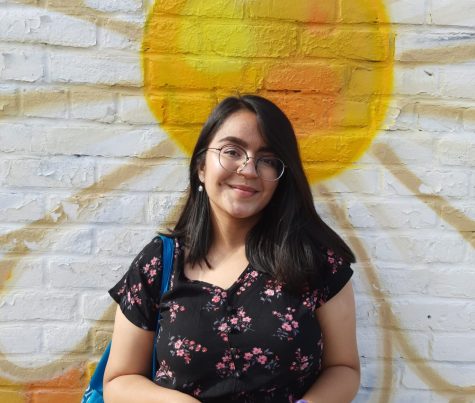Open letter to the administration

December 9, 2021
Dear Macalester Senior Leadership,
As we all know, the COVID-19 pandemic not only created a new set of struggles for people, but exacerbated existing challenges — physical, financial and psychological. Since the November 3rd Kagin sit-in, faculty and staff members have had a renewed interest in understanding and alleviating the struggles that BIPOC and international students on this campus face.
We, as BIPOC and international students, believe that there are solid steps Macalester can take to help students who are struggling. While we see the value of the ongoing strategic planning process in making Macalester a more supportive and safer space for us, there are urgent struggles we are facing right now that require attention, understanding, and action now.
We appreciate that the senior leadership is taking the time to listen to students, as was demonstrated through President Rivera and Provost Anderson-Levy attending Macalester College Student Government meetings and hosting student listening sessions. However, we have poured our energy into being publicly vulnerable and need to hear your updates on conversations and actions being taken to address our problems.
Thus, we have come up with these short-term goals that senior leadership should begin working on during J-term and spring semester.
- Ensure that every student can access remote instruction in the event of health issues, legal reasons (i.e., COVID-19 travel restrictions), etc. During an ongoing global pandemic where public health measures and travel capabilities are in flux, students need to know that they will be able to continue taking the courses they need to graduate and fulfill visa requirements, among other things. Senior Leadership needs to require that faculty provide remote instruction during these crises and ensure students are treated with respect so that their mental health is not impacted by a stressful and unpredictable registration process. Students should be provided grace and should not feel pressured to beg faculty members for remote instruction.
- Provide more immediately accessible counselling support to BIPOC and international students. While there are four to five BIPOC counselors at the Hamre Center, this is not adequate mental health support for Macalester’s significant BIPOC and international community. We acknowledge that the long-term goal would be to hire more BIPOC and non-US citizen mental health counselors. However, there is an urgent need for more one-on-one counseling support that understands individual and intersecting identities.
This could take the form of funding for students to access off-campus or remote counseling services, which is not currently guaranteed by the Emergency Fund. Mental health support should be proactive and mitigatory, not treated as an option only for emergencies. Additionally, curating a list of Twin Cities counselors with marginalized identities will make mental health more accessible for BIPOC and international students. Navigating healthcare insurance is one of the most stressful factors of accessing off-campus mental health resources. So, this list should also include counselors who accept UnitedHealthcare StudentResources, the insurance offered by Macalester and that most international students enroll in. - Re-evaluate the financial aid awards of students whose financial circumstances have changed due to pandemic-related reasons. As was brought to light in the listening session, many of our families have been hit hard financially by the pandemic. At a minimum, it is important that you at least initiate the process of re-evaluating students’ financial aid before the start of next semester. Students would greatly benefit from more scholarships, rather than loans that create additional burdens. Since the Emergency Aid only covers $500 worth of expenses in crisis situations, it is not sufficient to address this larger problem. We understand this is a complex conversation, so the goal we are setting is that we begin with a conversation between students and senior leadership focusing on this concern.
- Increase the visibility of College discrimination and/or harassment reporting mechanisms and processes. Professors should be required to list bias/harassment reporting links/forms within their syllabi and be up to date on policies, including Title IX. Professors and students should be provided resources that adequately explain bias/harassment as well as the process that takes place once a report has been submitted, especially as it relates to Title IX. Knowing these processes and being able to reference resources will allow both faculty and students to be well informed on interpersonal conduct and confidentiality as well as how decisions are made. As the search for the new Title IX coordinator continues, the college should provide campus-wide updates that are housed on the Title IX website among other digital and physical communications. Lastly, if a professor has multiple bias/harassment reports filed against them, a clear policy that is known and understood by all should be in place to monitor the professor and provide guidance on how to mitigate these claims of bias/harassment.
- Improve professor accountability to adhere to culturally competent and inclusive classrooms and teaching. Professors should work within their departments and in collaboration with the Serie Center, the Department of Multicultural Life, International Student Programs and other college actors to ensure that their courses provide an inclusive and respectful lens for learning. Departments should begin a process of review that defines diversity, equity and inclusion (DEI), and determines ways in which DEI can be incorporated into the department and courses.
Additionally, many professors were unaware of the events leading to the Kagin sit-in and felt uncomfortable facilitating conversations around it in class. For many of us, professors sometimes allow hurtful comments to be made in class, especially courses on the Global South. Department coordinators should collect student and faculty input on drafting guidelines for setting intentions for and facilitating sensitive conversations in class. These conversations should not overly burden BIPOC and international students. These guidelines should be clearly communicated in class at the beginning of courses every semester.
- Increase effort towards hiring and retaining more BIPOC and international professors and staff. Emphasizing values of multiculturalism and internationalism requires consistent effort and even in the recent past, Macalester has fallen short of the ideal. These values must also reflect in hiring policies. Academically, there are some departments that don’t have much representation of BIPOC — international or domestic — professors and staff. There are also examples of courses where professors are teaching about cultures with which they have no personal connections. Macalester has the means, if it were to be made a priority, to hire professors that represent the voices we are trying to include. Additionally, keeping such hired professors is important. Many newly hired BIPOC and international professors are assistant professors with temporary contracts, so hiring should also focus on providing tenure. Representation matters and having more staff that understand the challenges and needs of BIPOC and international students will mean more opportunities to prioritize a range of needs.
While many of these goals seem to be directed towards faculty and staff, this letter is addressed to senior leadership because you have the institutional influence and power to affect change, and students need you to use it. The writers of this letter acknowledge that we do not speak on behalf of all BIPOC and international students. Instead, we are highlighting issues we have been impacted by as BIPOC and international students. We hope to hear from you soon, and are happy to clarify these goals further if needed. Thank you.
With respect,
Kashvi Ajitsaria ‘22
Ayana Smith-Kooiman ‘22
Uditi Chandrashekhar ‘24
Dipakshi Sarma ‘24
Rayan Hamid ‘22
If the goals that we have laid out in our letter to senior leadership resonate with you, please show your support by adding your signature to it using this form! You do NOT have to be a BIPOC or international student to add your signature – we appreciate everyone’s support and solidarity.











